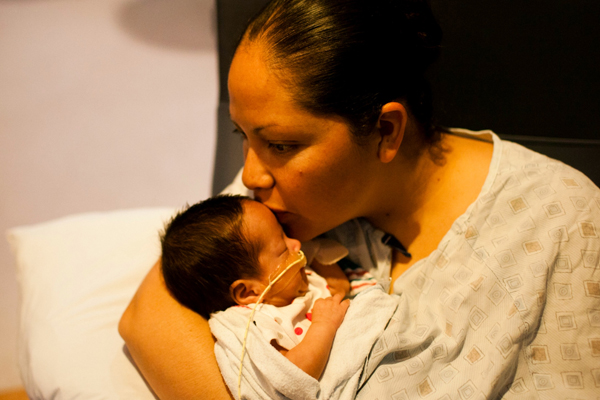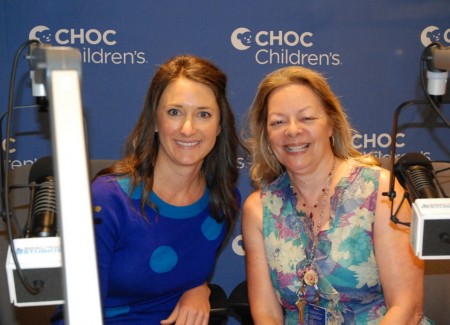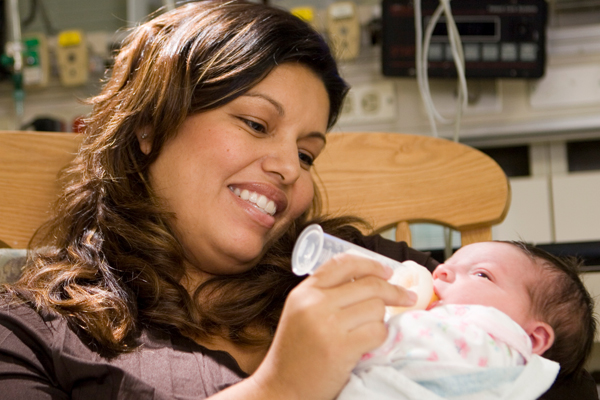BREAST MILK BENEFITS FOR MOM AND BABY
“Breast milk is the ideal food for babies. It has the vitamins, protein and fat that a baby needs to grow. It’s easy to digest, contains antibodies that help the baby fight off illnesses and lowers the baby’s risk for having asthma, allergies and becoming obese,” says Dr. Bixby, CHOC’s medical director of lactation services. Babies exclusively breastfed for the first six months also tend to have fewer ear infections, respiratory illnesses and diarrhea, Dr. Bixby says. Plus, breastfeeding helps mom and baby bond. The American Academy of Pediatrics, the American College of Obstetricians and Gynecologists, and the World Health Organization all strongly recommend breastfeeding. And, it’s free!
BENEFITS OF DONOR MILK
In the case where a mom can’t produce or sustain her own milk supply, for whatever reason, donor human milk is an excellent alternative to a mother’s breast milk or formula, says Dr. Bixby. “Donor milk isn’t as good as the mother’s own milk but it’s way better than formula, especially for preterm babies or those with gastrointestinal or digestive issues that make it harder for the baby to digest food. Breast milk is designed to help move the gut better. It is a limited resource so at CHOC, we mostly use donor milk for preterm babies under 32 weeks old and also at times for some of our surgical patients.”
LACTATION SERVICES AT CHOC
CHOC’s Clinical Nutrition and Lactation Services department seeks to be a helpful source of nutrition and lactation information for patients, their families and the community. Individualized, family-centered and culturally sensitive lactation care is part of CHOC’s interdisciplinary approach to healthcare and wellness. CHOC has board-certified lactation consultants on hand to help patients who are breastfeeding or receiving donor breast milk. For information about inpatient lactation services at CHOC, call 714-509-8455.
FAST FACTS
- Percentage of infants in California who were breastfed in 2013: 91.6
- Percentage of infants nationwide breastfed at 6 months (infants born in 2010) – up from 35% of infants born in 2000: 49%




















